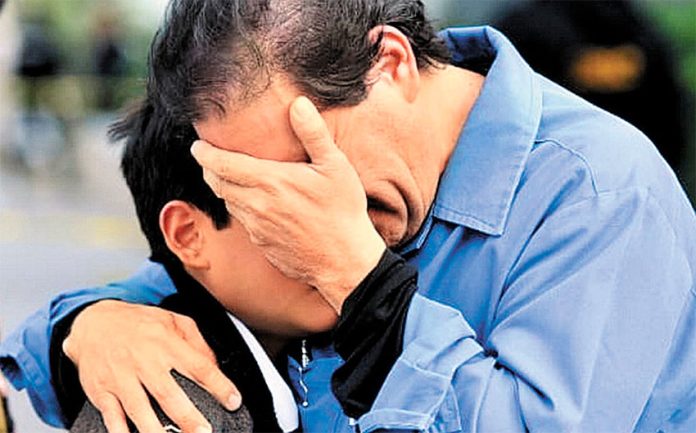Parents of students at the Coahuila school where an 11-year-old carried out a deadly shooting on Friday morning had rejected the state’s backpack inspection program in October.
The boy smuggled two Glock pistols into the school in his backpack and shot his teacher, killing her and wounding six others before turning a gun on himself. The wounded have been reported in stable condition.
A document released after the shooting reveals that superintendent María Mayela Escobedo Carrillo notified state education authorities of the parents’ refusal to participate in the program.
“Parents were urged to agree to the Healthy and Safe Backpack Operation, which they rejected,” said the document.
“They expressed their refusal to participate in the searches and opposed others checking their children’s backpacks, also arguing that it was not necessary, since they themselves do so.”
In light of the attack, Coahuila Governor Miguel Ángel Riquelme said the operation would be reinforced and made mandatory in all schools in the state.
“[The operation] will be obligatory, in fact it was already being carried out in private [schools], but in some campuses where teachers and parents did not approve they rejected it in written declarations,” he said.
As to the source of the weapons used in the attack, Riquelme said the boy’s grandfather is being investigated.
“[The grandfather] is an essential part of the origin of the weapons. The grandfather is probably the owner of the guns,” he said.
Although he had initially said he believed the shooter had wanted to recreate a favorite videogame by carrying out the attack, Riqelme later said he only meant the game’s influence was part of the investigation.
The videogame theory was rejected by the Network for Children’s Rights in Mexico (REDIM), which attributed the attack to the “climate of war” in the country.
REDIM director Juan Martín Pérez said the attack wasn’t “a magical event,” nor was it influenced by a videogame, but was a product of the violence that has racked the country since former president Felipe Calderón declared war against drug traffickers in 2006.
“In this culture of war and militarization that we have in the country, this little 11-year-old socially and culturally reproduced this dynamic of armed violence, and the message in his environment clearly was that things are resolved through force,” said Pérez.
He said that as in all countries at war there are weapons, for which he called for the government to continue working with the United States to inhibit arms trafficking.
“The fact that the little one had access to weapons . . . speaks to the impressive quantity of small guns in circulation, which we can speak of in the millions, since families want to protect themselves and arm themselves illegally because they are in an environment of organized crime,” he said.
He also called on the Public Education Secretariat (SEP) to work to prevent such cases, as there are warning signs that can alert authorities to attacks like this before they happen.
The international nonprofit Save the Children also called on the SEP to improve security conditions in schools, attend to students’ mental health and carry out active shooter simulations to prepare them for possible attacks.
It said that the generalized violence in Mexico has severely affected the mental health of children and young people, as even the places where they should feel the safest, such as their homes and schools, have become dangerous.
A Save the Children survey of over 3,000 children and youths found that 37% had witnessed a shooting. It said that such an environment causes anxiety, constant fear, post-traumatic stress disorder and lowered academic performance, among other afflictions.
The organization asked president López Obrador to make strategies to prevent violence against minors a national priority.
Sources: Milenio (sp), El Universal (sp)
